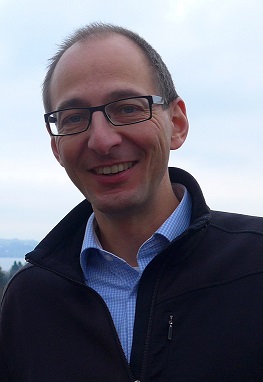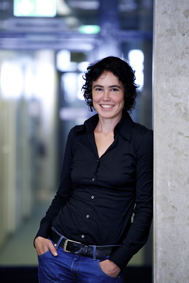Philosophy deals with questions that concern us as humans in foundational ways. What is knowledge? What is truth? What is time? What is science and what is pseudo-science? What is good, what is evil and why? Why is beauty beautiful, and does it continue to be beautiful if no one is looking? What is possible, what is impossible? Are we free to act as we please, and are we allowed to desire whatever we want? Are we responsible for our actions? And how should we respond to that responsibility?
Philosophy is not based on textbook knowledge. You will not be required to learn things by heart when you study it, but you will instead be required to hone your ability to think precisely and analytically. Approaching texts in a clear and structured manner and being able to critically analyse arguments are as important in philosophy as creativity and independence. We will encourage you to ask fundamental questions and to re-appraise existing theories and positions over and over again, right down to their very foundations.
Philosophical texts
The texts that you will be reading during your philosophy studies are often anything but easy. It will take patience and tenacity to deal with and understand them. Why not take a look at these sample texts to find out what we are talking about.
- Kant, Critique of Pure Reason, Introduction B
The pagination in this excerpt from the Critique of Pure Reason follows the “Akademie” edition; the text is available free of charge on korpora.org. However, it is conventional to refer to the original pagination of the first edition of the Critique of Pure Reason published in 1781 (A) and/or the second edition published in 1787 (B) when referencing the work. The introduction included here is from the second edition and has the page numbers B43-89.

After many years abroad, I am glad to have found my academic home here at the University of Konstanz’s Department of Philosophy, the atmosphere of which I value particularly highly. For some time, I was unsure whether I wanted to be a natural scientist or a philosopher. In the end, my interest in foundational questions won out. I have since found that I can still combine both approaches in my research, which I find very exciting. According to the American philosopher Wilfrid Sellars, the main task of philosophy is to reconcile two ideas of man - one that is mundane, embroiled in everyday life, and another that is external and scientific . It is worth exploring how to achieve this; philosophy must continuously assure itself of its own methods. I find it particularly worth-while to explore many philosophical questions in the light of this two-pronged idea, for instance how we, as biological beings, can act with purpose and for particular reasons. This question addresses the two ideas discussed by Sellars. An honest answer must take into consideration both, it must not ignore one in favour of the other. But how does one do justice to both ideas without succumbing to neuroscientific scientism or philosophical mutterings? That’s the difficult part. Join me in finding the answers!

If you want to study philosophy, you need to demonstrate interest in philosophical topics, questions and texts and the willingness and power of concentration to discuss and scrutinise them closely over extended periods of time. In my view, Konstanz is the perfect place to do so, because the atmosphere is very good and constructive, and we all enjoy discussing and debating amongst each other, exploring a great variety of historical and contemporary philosophers.

The beauty of philosophy is that it is non-hierarchical. What counts are the arguments that you can muster in support of a thesis. Sometimes, even a single counterexample will suffice to demolish cherished doctrines and acclaimed theories. This is why I like to think of philosophical reasoning as a universal tool that can be used irrespective of context. Ultimately, practising philosophy means developing your analytical thinking skills, identifying the important questions and, ideally, working your way towards an answer. Developing sound or even superior arguments, asking the right questions and thinking analytically is what you will learn as a philosophy student. The university’s Department of Philosophy is perfect for this because it is full of excellent researchers who place a high value on working closely with you, the students.
